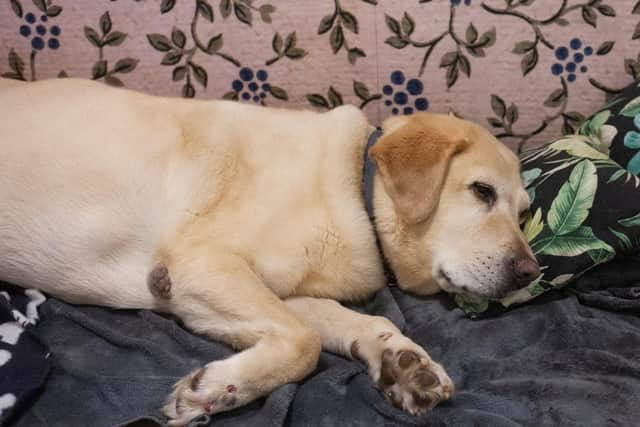Nine festive dangers that could put your dog at risk Including loud noises, litter, leftovers and fairy lights
This article contains affiliate links. We may earn a small commission on items purchased through this article, but that does not affect our editorial judgement.
and live on Freeview channel 276
To help celebrations go safely and with a swing, experts at global pet brand PetSafe® have compiled their nine most common household hazards to watch out for in coming days.
Loud noises
Pulling crackers and party poppers, along with fireworks, can spook your pooch - especially the more nervous ones. So, make him a safe space - such as a crate, den or puppy pen – and distract him with his favourite toys, blankets and chews.


Leftovers
Advertisement
Hide AdAdvertisement
Hide AdWhat may seem like a seasonal treat – chocolate, mince pies, Christmas pudding, onion gravy or alcohol - could be very dangerous for dogs. So don’t feed them from your plate and clear the table when you’re done, so that they can’t lap up some leftovers.
Bones
When cooked, bones can easily splinter and get stuck in your dog’s gums, as well as being a choking hazard. So, keep them out of reach and bin the bones when the meat’s been cut.
Litter
Keep an eye on what your dog might pick up and swallow from crackers and party poppers – there’s likely to be small gifts and rubbish lying around the table and floor - they could be choking hazards and cause internal blockages.
Tree stands
Many real trees are preserved with pesticides and fertilizers, so make sure the water in your reservoir isn’t accessible to your pet, as the bacteria in it could make them really poorly. To be extra-safe, cover it with foil and a well-wrapped tree skirt.
Fairy lights
Advertisement
Hide AdAdvertisement
Hide AdIf chewed and swallowed, fairy lights can cause electric shocks, mouth damage and intestinal blockages - so don’t leave your dog unattended around them and keep them out of reach.
Snow globes
Snow globes sometimes contain antifreeze, which is very toxic to dogs. So, display them out of paw’s reach and, if a spillage occurs, be send your dog out of the room for the clean-up.
Mistletoe and holly
Dogs can suffer some nasty tummy troubles if they eat too much of this favourite yuletide greenery. So, display it where he can’t reach or opt for artificial or pet-safe versions instead.
Christmas trees
Whether it’s real or fake, an indoor tree is a strange sight for your dog. To reduce the risk of it being knocked over and causing an injury – as well as an almighty mess – make sure it’s secure. Also vacuum around it regularly to minimise the amount of pine needles he can swallow or get stuck in his paws. Pine’s is not toxic to dogs, but it can irritate his digestive system, and those needles can be sharp.
Advertisement
Hide AdAdvertisement
Hide AdPetSafe’s Rob Steele said: “Christmas is a special time of celebrations for all the family – including our furry, four-legged members – but it’s important to be aware of the hidden hazards, in our homes, that can be dangerous to them.
“There’s lots of festive food you can treat your pet to, including skinless and boneless meat, such as turkey, lamb or salmon fillets – but without the fat or gravy. Carrots, peas, broccoli, parsnips, potatoes, green beans and brussels sprouts are also safe for dogs but, to avoid an upset stomach, it’s better to keep them on their usual diet.
“We also advise pet parents to have the number of your vet to hand in the event of an emergency, and to contact them immediately for advice if you think your pet has eaten, touched or inhaled something they shouldn’t have. Many local vet practices choose to close over the Christmas period so make sure you’re aware of your local out-of-hours emergency vet – but hopefully you won’t need it
“By bearing these potential household hazards in mind, we can all help ensure our festive season is special for the whole family.”